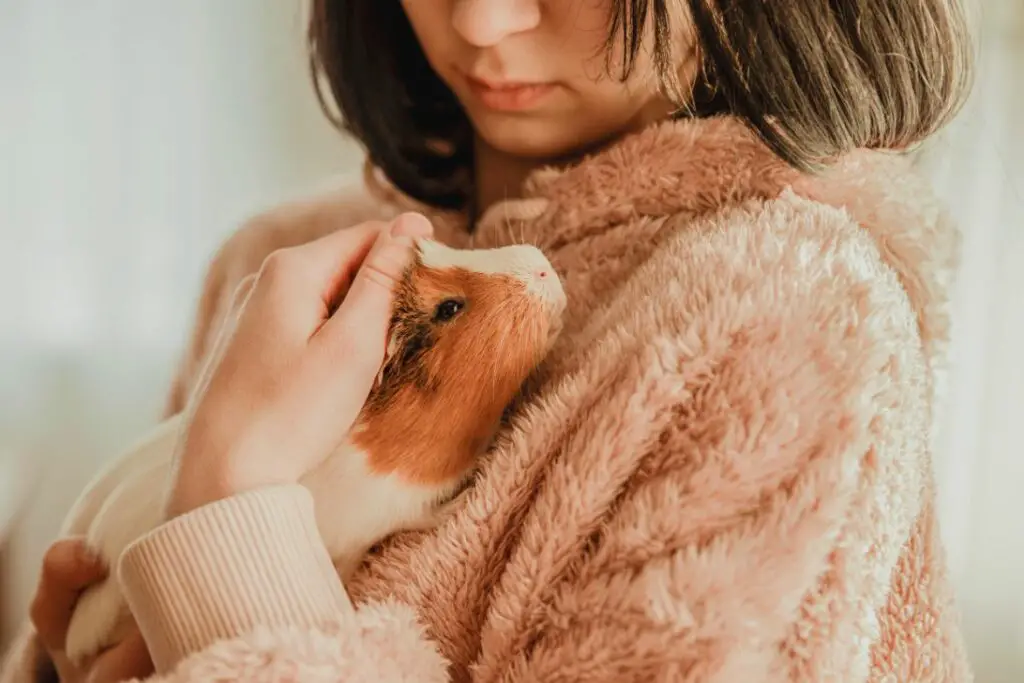Guinea pigs are adorable and often entertaining pets that many people love to keep in their homes. These small rodents are known for their chirping and squeaking sounds, but have you ever wondered if they can snore? In this blog post, we will explore whether guinea pigs are capable of snoring, why they might snore, and any health risks associated with their snoring.

What is snoring?
Snoring is the sound that occurs when tissues in the throat vibrate during breathing. This can happen when the airway is partially obstructed or narrowed, causing turbulence in the air as it passes through the throat.
Are guinea pigs capable of snoring?
Yes, guinea pigs are capable of snoring. While they may not snore as loudly or as often as humans do, they can still make snoring sounds during their sleep.
Why Do Guinea Pigs Snore?
Is snoring a sign of illness?
Snoring can be a sign of illness in guinea pigs. If your guinea pig suddenly starts snoring or snoring more frequently, it could be a sign of respiratory distress, which can be caused by various illnesses such as pneumonia or a respiratory infection.
Do certain breeds of guinea pigs snore more than others?
There is no evidence to suggest that certain breeds of guinea pigs are more prone to snoring than others.
However, it is important to note that all guinea pigs can be at risk of respiratory issues, so it is essential to monitor their health and behavior regularly.
Can environmental factors contribute to snoring in guinea pigs?
Yes, environmental factors can contribute to snoring in guinea pigs. For example, if your guinea pig is exposed to dust, smoke, or other airborne irritants, this can cause inflammation of their airways, leading to snoring.
Similarly, if your guinea pig’s sleeping area is too warm or humid, this can also cause snoring.
Health Risks Associated with Guinea Pig Snoring
Can snoring be harmful to guinea pigs?
Snoring in guinea pigs can be harmful if it is a sign of respiratory distress. If left untreated, respiratory issues can lead to severe health problems or even death in some cases.
Therefore, it is essential to monitor your guinea pig’s snoring and other breathing patterns and seek veterinary care if you notice any unusual changes.
What are the signs of respiratory distress in guinea pigs?
Signs of respiratory distress in guinea pigs can include wheezing, coughing, sneezing, labored breathing, and discharge from the nose or eyes. If you notice any of these symptoms, it is crucial to seek veterinary care immediately.
How can I prevent or treat snoring in my guinea pig?
To prevent or treat snoring in your guinea pig, it is essential to keep their environment clean and free of any irritants.
Regular cleaning of their cage, providing fresh hay and water, and avoiding exposure to smoke and dust can help reduce the risk of respiratory issues.
Additionally, if your guinea pig is already snoring, seeking veterinary care is essential to determine the underlying cause and receive appropriate treatment.
Other Noises Guinea Pigs Can Make
What are the other noises guinea pigs can make?
Guinea pigs are social animals that communicate through a variety of sounds, including chirping, squeaking, purring, and even teeth chattering.
Each of these sounds can indicate different emotions or behaviors, such as happiness, excitement, or aggression.
How can I tell the difference between snoring and other noises?
To distinguish snoring from other noises, listen closely to your guinea pig while they are sleeping. Snoring sounds will be rhythmic and consistent, similar to human snoring.
Other noises, such as chirping or squeaking, will be more sporadic and variable in pitch and tone.
Conclusion
In conclusion, guinea pigs are capable of snoring, and while it may be cute, it can also be a sign of respiratory distress.
It is essential to monitor your guinea pig’s snoring and overall health regularly and seek veterinary care if you notice any changes or issues. By keeping their environment clean and free of irritants, you can reduce the risk of respiratory problems and ensure your guinea pig stays healthy and happy.
- How Long Do American Eskimo Dogs Live? Important Factors and Care Tips - September 29, 2023
- Do American Bulldogs Need Grooming? Essential Tips and Care Guidelines - September 29, 2023
- Do Bengal Cats Enjoy Playing? Essential Tips for Keeping Them Active - September 29, 2023